Ryzen 9 5950X vs Ryzen 9 3900X
I managed to grab 5950X for a decent price, so I decided to upgrade my CPU. Comparison between my old and new CPU can be found here.
Test Setup
Disclaimer: Please keep in mind that I am not a professional reviewer nor I aspire to be one. Those are just the the tests I run for my own curiosity. Testing methodology is most likely flawed, especially when it comes to gaming benchmarks. I do not have enough experience to chose appropriate graphics settings.
Hardware configuration:
- ASRock X570 Taichi (BIOS 5.00 AGESA 1.2.0.7)
- GSkill F4-3200C14D-32GTZKW (2x16GB @ 3733MHz 16-16-16-32 1T GDM On)
- PowerColor 7900XTX Red Devil
- Plextor M5 Pro 256GB
- Noctua NH-D15S
- Seasonic Vertex GX-1000 1000W Gold
Used software versions:
| Software | Version |
|---|---|
| Windows 10 | 22H2 |
| AMD GPU drivers | 23.7.2 |
| AMD chipset drivers | 5.05.16.529 |
| Cinebench R15 | R15 (Build RC184115DEMO) |
| Cinebench R20 | R20.060 (Build RBBENCHMARK281795) |
| CPU-Z | 2.06.1.x64 |
| CPU-Z Benchmark | 17.01.64 |
| 3D Mark Time Spy | v1.2 |
| 3D Mark CPU Profile | v1.1 |
| Shadow of the Tomb Raider | v1.0 build 492.0_64 |
| Metro Exodus Enhanced | Benchmark v1.0.0.9 x64 |
Tests Results
The most important part of this post!
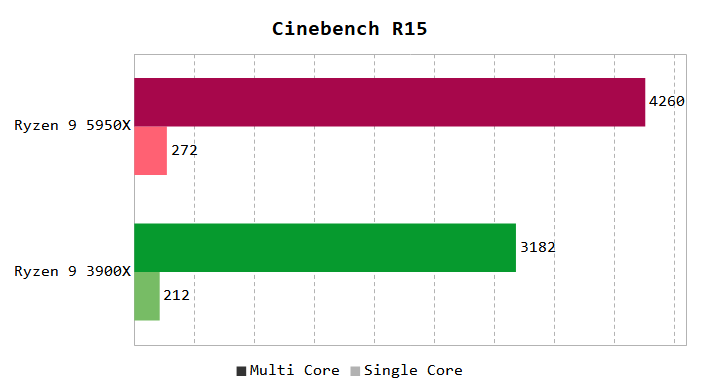
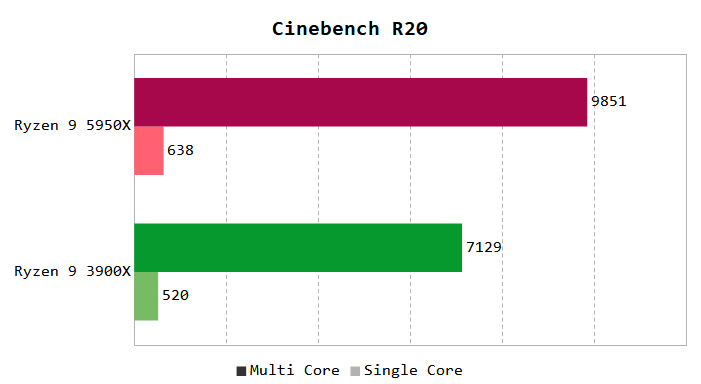
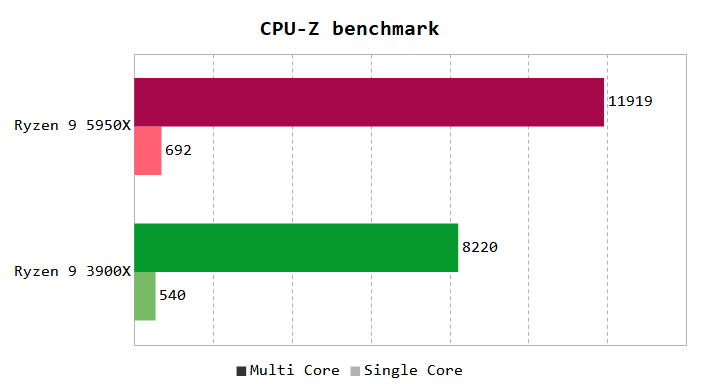
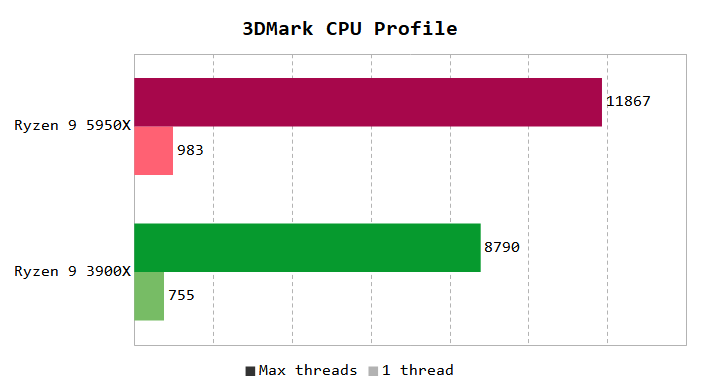
We can see a solid bump in performance, in both single and multi-threaded benchmarks. Gains in range of 20% to 40% are nothing to sneeze at.
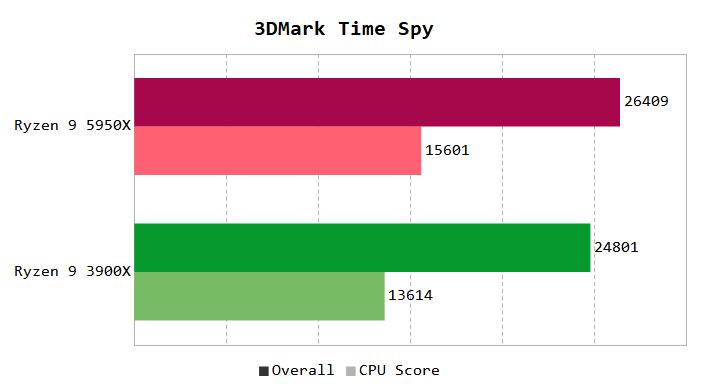
Time Spy shows smaller gains than previous benchmarks, but this is graphics benchmark after all. Still 15% gain in CPU score is worth noting.
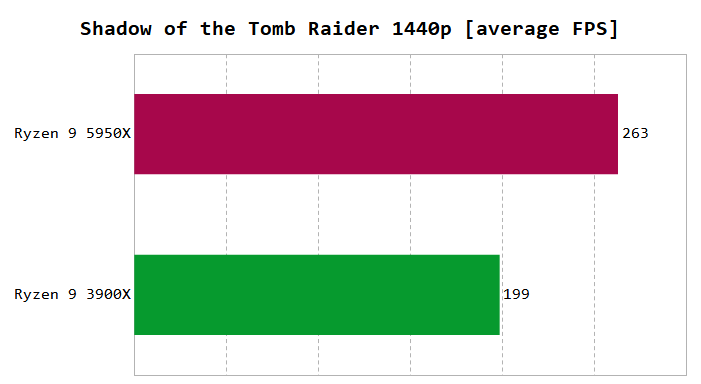
Settings used for Shadow of the Tomb Raider (integrated benchmark):
| Resolution | 2560x1440 |
| API | DirectX 12 |
| Vsync | Off |
| Anti-Aliasing | TAA |
| Preset | High |
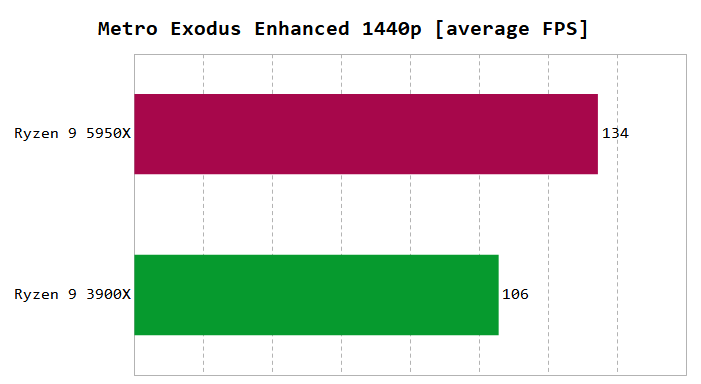
Settings used for Metro Exodus Enhanced (integrated benchmark):
| Resolution | 2560x1440 |
| Preset | High |
| Shading Quality | High |
| Ray Tracing | Normal |
| NVIDIA DLSS | Off |
| Reflections | Hybrid |
| Variable Rate Shading | 4x |
| Hairworks | Off |
| Advanced PhysX | Off |
| Tesselation | Full |
For gaming benchmarks I chose settings where system was limited by CPU mostly. 1440p and high settings in selected games is really nothing for 7900 XTX. In normal scenario every sane user will max graphics settings at 1440p with such GPU, differences between CPUs will be then smaller for sure.
Conclusion

One thing to note is that the results for 3900X are slightly lower than results presented in my previous test: Ryzen 9 3900X vs Core i7-4930K. I would attribute it to the fact that early Taichi X570 BIOSes had broken power usage readout, which resulted in CPU boosting bit higher than expected. This is not a big deal as the differences are really marginal.
Obvious conclusion is that 5950X is faster than 3900X. No surprises here, 4 more cores + newer arch do the job. Was it worth upgrading? Well, it is hard to say. I mainly jumped the 5950X ship, because I was able to get it cheaply plus I was kinda fed up with my CPU running 24/7 with LLC set to 1 (see: Strange issue with my 3900X).
Off to tweak memory on new CPU, so far, I only tried same RAM/Bus clocks as on my 3900X (although those worked without any issue)!